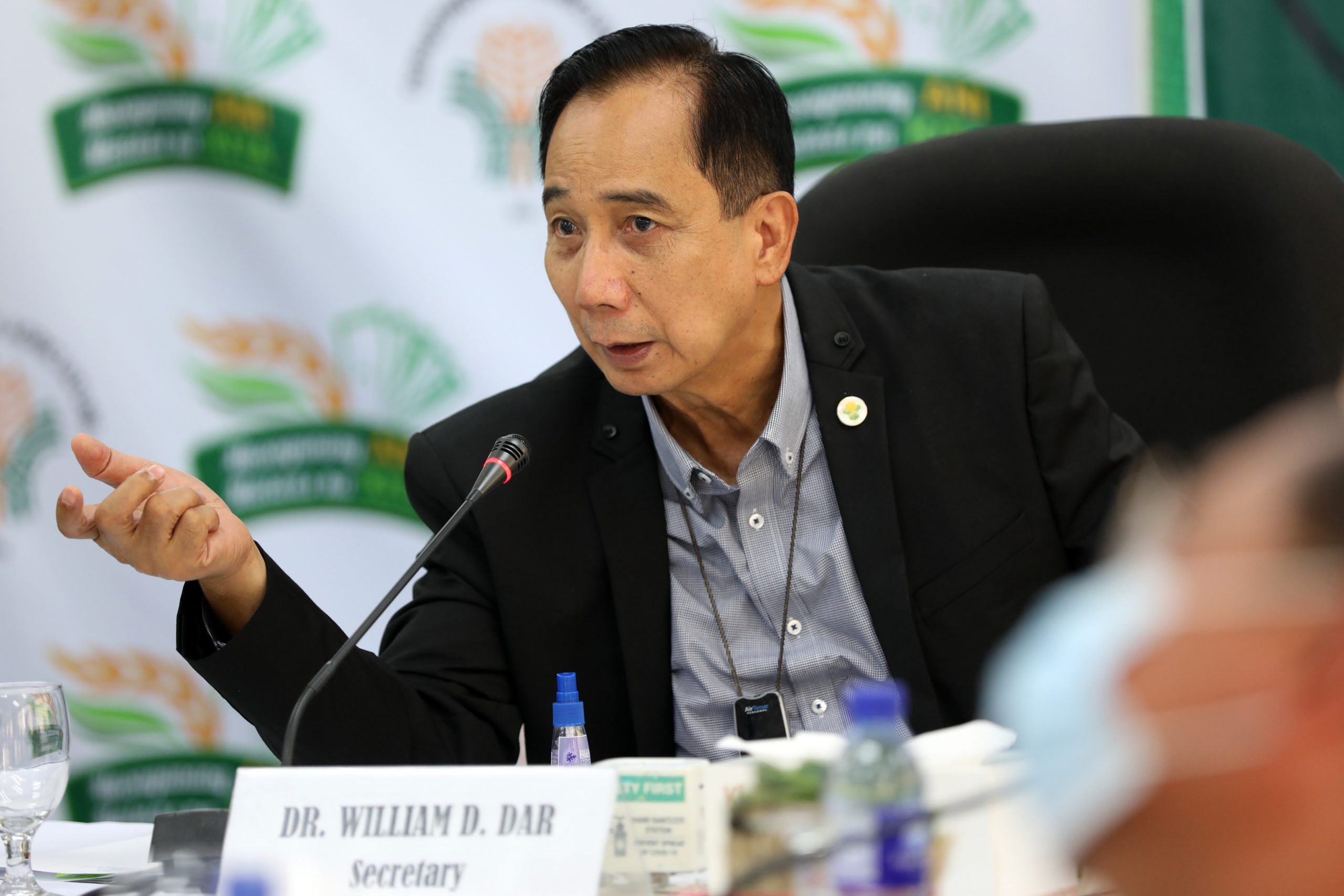
The Department of Agriculture (DA) is implementing short- and medium-term strategies to stabilize the supply and prices of basic farm commodities in Metro Manila and Luzon, and temper inflation.
In a memorandum order issued 14 January 2020, Agriculture Secretary William Dar reiterates his directive to all DA officials to implement needed strategies to stabilize supplies and prices of pork, vegetables, fruits, and fish.
“As we all know, agriculture remains the key factor in keeping the country’s inflation rate within the government’s target range. That’s why it is imperative that we ensure price stability of basic food products in the market in order to hit conducive long-term and sustainable growth of the overall economy amid this pandemic,” the DA chief said.
Food prices surged as the African Swine Fever (ASF) posed challenges to pork supply, while the onslaught of a series of typhoons adversely impacted the supply and prices of vegetables and other farm commodities.
To stabilize supply and price of pork, he said there is an immediate need to increase shipments of hogs from Visayas, Mindanao, and other ASF-free areas or “green zones” in Luzon to Metro Manila and other parts in Luzon.
The DA agribusiness and marketing group or AMAS is also coordinating with hog raisers’ federations to sell pork products through Kadiwa Ani at Kita markets and via online.
He said the DA is encouraging pork imports from ASF-free countries through the minimum access volume (MAV) scheme, with 30 percent (%) tariff. The MAV is 54,000 metric tons (MT) and would start coming in on February 1, 2021. Imports beyond 54,000 MT are imposed with 40% tariff.
The DA is now going through the process of increasing the MAV to 162,000 MT to ensure pork supply and stabilize retail prices.
For the medium-term, the DA’s Bureau of Animal Industry (BAI) and regional field offices, veterinary groups, state universities and colleges notably CLSU and UPLB, and hog raisers and traders will vigorously implement “Bantay ASF sa Barangay” or BABay ASF, aimed at effectively managing, preventing and controlling the swine viral disease.
“BABay ASF is currently being implemented that will be coupled with a massive repopulation program in ASF-free areas to secure the future supply of pork products, with an initial budget of P400 million,” said Secretary Dar.
Further, he has ordered the DA’s “Bantay Presyo” task force to strictly implement and monitor the suggested retail price (SRP), noting that an “economic intelligence” group is currently conducting investigations to identify entities manipulating or taking advantage of the current supply situation.
The DA has been receiving reports that traders are buying commodities from provincial “bagsakan centers” and impose a very big mark-up when they sell the goods in Metro Manila markets.
“We will not hesitate to file cases against these unscrupulous individuals,” Secretary Dar said.
Also, as part of the immediate strategies to ease price hikes of fruits and vegetables, the DA will intensify production through urban agriculture, and “Gulayan sa Barangay at Paaralan” in partnership with LGUs and the Department of Education.
Secretary Dar said they expect prices of fruits and vegetables to stabilize in the coming weeks as harvest starts.
For the medium-term, he said the DA will construct vegetable and fruit processing facilities, warehouses, and cold storages.
Finally, the DA-Bureau of Fisheries and Aquatic Resources (BFAR) will expand the production of aquaculture species, particularly tilapia, bangus, and shrimp, while maintaining a regulated importation regime.
The DA-BFAR will also encourage joint fishing schemes between commercial and municipal fishers to increase the catch and supply of major marine species like galunggong (round scad). ### (DA StratComms)













